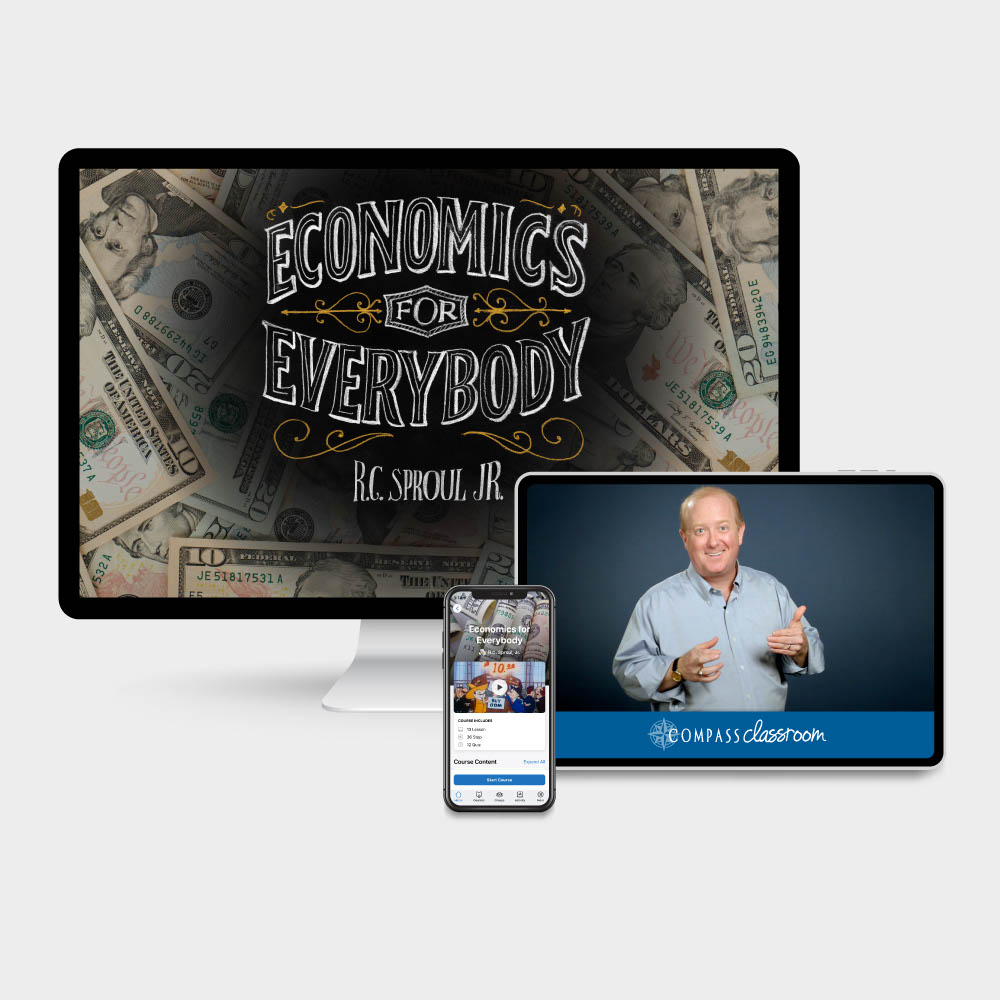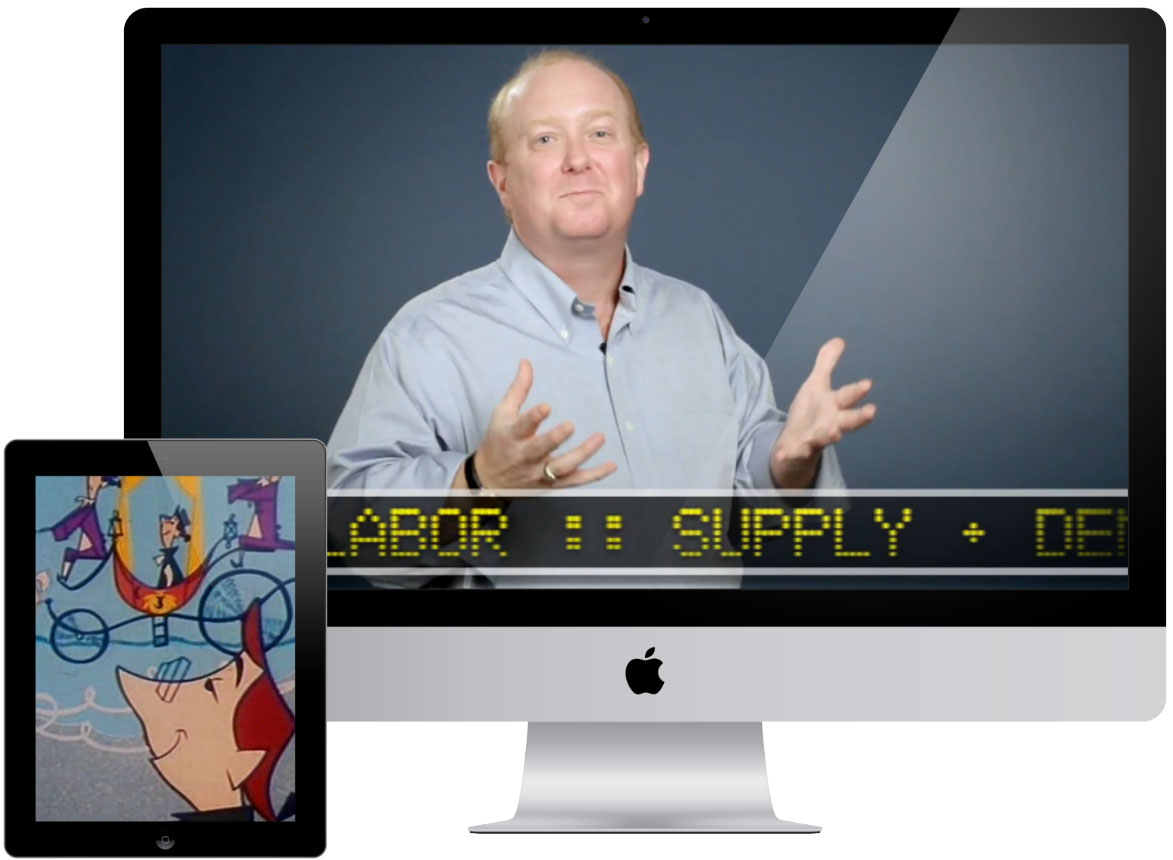
Share this post with another homeschool mom!
An example of such thinking is the warning from Jim Wallis that we dare not solve our government’s fiscal disaster by balancing the budget on the backs of the poor. To do so would be to lack a true Christmas spirit.
Does caring for the poor demand a welfare state? Is income redistribution to the poor something that should be embraced as a good economic policy?
The Poor, Economic Policy, and Christian Ethics
In evaluating any economic policy, we would do well to remember Murray Rothbard’s insight that all economic policy has an ethical component. Once we move beyond examining the purely economic consequences of the minimum wage, for example, and then advocate raising, lowering, or abolishing it, we must incorporate some ethical standard, because we are now entering the dimension of the should or should not.I point out in chapter 13 of my book, Foundations of Economics: A Christian View, that if we want to fully analyze any economic policy, we must answer two questions, not just one.
That is, does the policy do what it is ostensibly supposed to do?
Is it ethically sound?
Is it morally acceptable, or does it violate our accepted ethical criteria?
Ethics and Economics
Any economic policy about which we cannot answer both questions in the affirmative must be deemed unacceptable. In order to evaluate any economic policy, therefore, it is imperative that we understand both the ethics and economics of the case.
We certainly need to discern wisely our moral duty when relating to the poor. That Christians are to minster to the poor is noncontroversial.
- God Himself cares for the poor (Ps. 35:10).
- God wants us to defend the poor (Ps. 82:3)
- God encourages us to pay attention to the plight of the poor (Ps. 41:1; Prov. 21:13)
- God wants us to to be charitable towards the poor (Prov. 19:17)
- God urges us to remember our poor enemies (Prov. 25:21)
- Jesus told the rich young ruler to sell all his possessions and give the money to the poor (Matt 19:16–30)
- The Apostolic Church ministered faithfully to those in need (Acts 2, 4).
- Instead of merely feeling sad for the poor, we must provide them with material assistance (Jas 2:15–16)
Unfortunately much confusion has emerged over the past 100 years regarding how we are to fulfill God’s requirement to show charity to the needy. Much of the confusion stems from a change in the conventional definition of poverty.
The Biblical view of poverty, which is the view that guided much social thought into the 1900s, defines the poor as those so lacking the material necessities of life, they cannot survive without charity. As egalitarianism increasingly took hold in modern minds, however, the concept of poverty became relative, so that a person is “poor” merely if he has sufficiently less than other people. When God in Scripture commands us to give aid to the poor, however, he is not calling us to give money to someone merely because they spent their money on a cell phone instead of food.
In fact, most officially poor people in the United States are in fact living relatively comfortably. According to 2005 data from the U.S. Census Bureau, the typical poor household, as defined by the government, has a car and air conditioning, two color televisions, cable or satellite TV, a DVD player, and a VCR. If there are children, especially boys, the family has a game system, such as an Xbox or PlayStation. It turns out that very few United States citizens are poor as defined by the Bible.
That is not to say that there are not any truly poor people—certainly in other, less developed countries—or that it is wrong to help our neighbors who may not be absolutely destitute. It is to say, however, that we need not feel guilty for rethinking the ethical efficacy of the American welfare state.
It turns out that in the first place, it is not clear at all that the programs mentioned above have been proven effective. There are serious practical problems with welfare subsidies to lower-income citizens. Income transfer payments to the poor are ineffective in reducing poverty. The trouble is we get more of whatever we subsidize. According to economist Randall Holcombe, U.S. welfare programs cost more than they are worth.
This is because welfare payments to the poor reduce the opportunity cost of not working, the primary determinant of poverty in the US. If people who do not work receive income maintenance from the state, it reduces the quantity of income they have to give up if then do not work, thereby making leisure more attractive at the margin. While income taxation reduces hourly wages and hence the marginal benefit workers receive from their labor, welfare subsidies reduce the cost of not working. Such transfer payments make leisure more attractive.
At the same time, taxes required to pay for the welfare state reduce the ability and incentive for productive people to save and invest. Less saving and investment yields a relative decline in the capital stock over time. Capital consumption results in reduced productivity and real income: not a recipe for less poverty and more prosperity.
Additionally, those Christians who advocate interventionism fail to remember that from a Christian perspective, the ends never justify the means. If we want to acceptably do God’s work, we not only must seek to obtain ends ordained by God, but we must use means ordained by Him as well. If we see poverty as a social evil and desire to reduce the number of people living in poverty, we could accomplish this simply by executing every poor person. That would, after all, reduce the number of people living in poverty.
But it would also be evil. This example may make my case by noting the absurdum of the ol’ reductio, but you get the point. We cannot embrace wicked means to achieve morally desirable ends.
Because all economic policy affects what people can do with property, a Christian view of economic policy demands that we evaluate policy within the Christian ethic of private property. As noted by various Christian thinkers from Tertullian, to Aquinas, Calvin, Charles Hodge, and Francis Wayland. both general and special revelation teach that people possess a divine right to private property. In Scripture we find commandments against:
- theft (Exod. 20:15, Deut. 5:19, Luke 18:20)
- fraud (Lev. 19:35–36, Prov. 11:1)
- moving property barriers (Prov. 23:10–11)
The account of Ananias and Sapphira in Acts 5 indicates that the right to property includes the freedom to dispose of one’s property as one sees fit, without compulsion from other people.
Of course this right to property is relative to claims made by other people. God is the ultimate owner of all there is and hence we are all responsible to Him for how we use the property He has bestowed upon us and we will be held accountable to Him on the last day for how well we executed our duty as stewards. In fact, because He is the ultimate owner of all there is, only He can determine the rules by which we may justly come into possession of property. Scripture teaches that, with regards to our social interaction with other humans, God has ordained that each of us should be secure in our property.
Free Market
The implications for economic policy point us toward a free market. If each person is secure in his property, this prohibits theft by individuals. It also, importantly, prohibits theft by rulers. God did not say, after all, “Thou shalt not steal, unless a majority in Congress and the President say so.” And if the right to property includes that of disposing of one’s property as he desires, provided he does not violate anyone else’s right to do the same, this implies that state interference in voluntary exchange is wrong as well. Therefore, as Christians we are not free to advocate for increased regulation of business, minimum wages, monetary inflation, fiscal stimulus, confiscatory taxation, or subsidies as means to achieve our desired ends.
It also means we have our work cut out for us. When we identify social ills to which Scripture calls us to minister, we need to do the hard work of finding ethical means for doing so. Violating property rights with good intentions will not cut the ethical mustard.
Want to teach your kids Economics?
RC Sproul, Jr.’s consummate teaching is illustrated with hundreds of fun and interesting clips from old movies and cartoons. Learning economics is interesting and enjoyable with Economics for Everybody.
Learn More
Some book links are from Amazon and as an Amazon Associate we earn from qualifying purchases.
Share this post with another homeschool mom!










